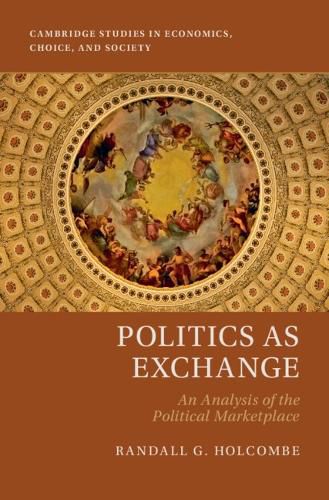Readings Newsletter
Become a Readings Member to make your shopping experience even easier.
Sign in or sign up for free!
You’re not far away from qualifying for FREE standard shipping within Australia
You’ve qualified for FREE standard shipping within Australia
The cart is loading…






Political institutions have been depicted by academics as a marketplace where citizens transact with each other to accomplish collective ends difficult to accomplish otherwise. This depiction supports a romantic notion of democracy in which democratic governments are accountable to their citizens, and act in their best interests. In Politics as Exchange, Randall Holcombe explains why this view of democracy is too optimistic. He argues that while there is a political marketplace in which public policy is made, access to the political marketplace is limited to an elite few. A small group of well-connected individuals-legislators, lobbyists, agency heads, and others-negotiate to produce public policies with which the masses must comply. Examining the political transactions that determine policy, Holcombe discusses how political institutions, citizen mobility, and competition can limit the ability of elites to abuse their power.
$9.00 standard shipping within Australia
FREE standard shipping within Australia for orders over $100.00
Express & International shipping calculated at checkout
Political institutions have been depicted by academics as a marketplace where citizens transact with each other to accomplish collective ends difficult to accomplish otherwise. This depiction supports a romantic notion of democracy in which democratic governments are accountable to their citizens, and act in their best interests. In Politics as Exchange, Randall Holcombe explains why this view of democracy is too optimistic. He argues that while there is a political marketplace in which public policy is made, access to the political marketplace is limited to an elite few. A small group of well-connected individuals-legislators, lobbyists, agency heads, and others-negotiate to produce public policies with which the masses must comply. Examining the political transactions that determine policy, Holcombe discusses how political institutions, citizen mobility, and competition can limit the ability of elites to abuse their power.